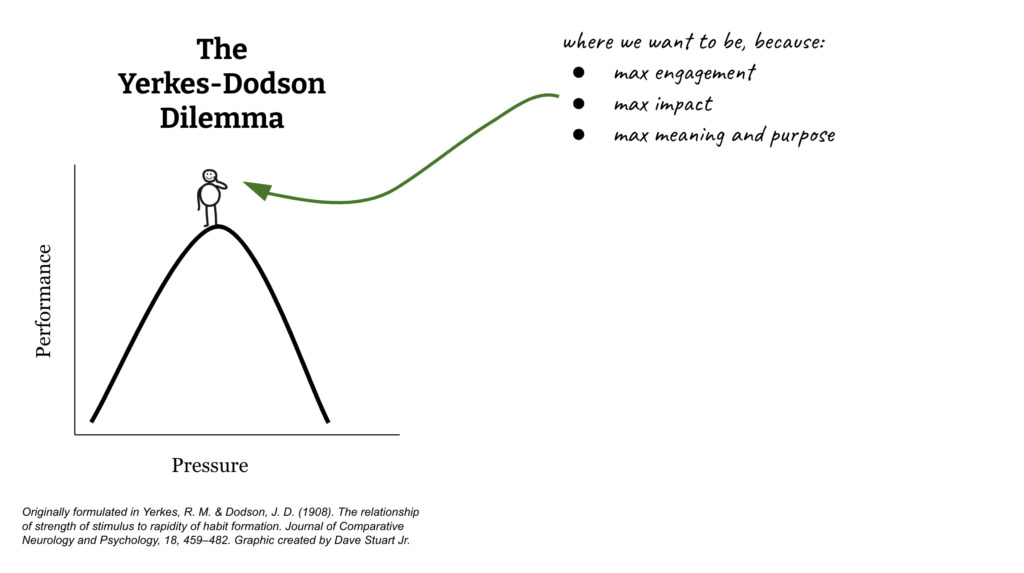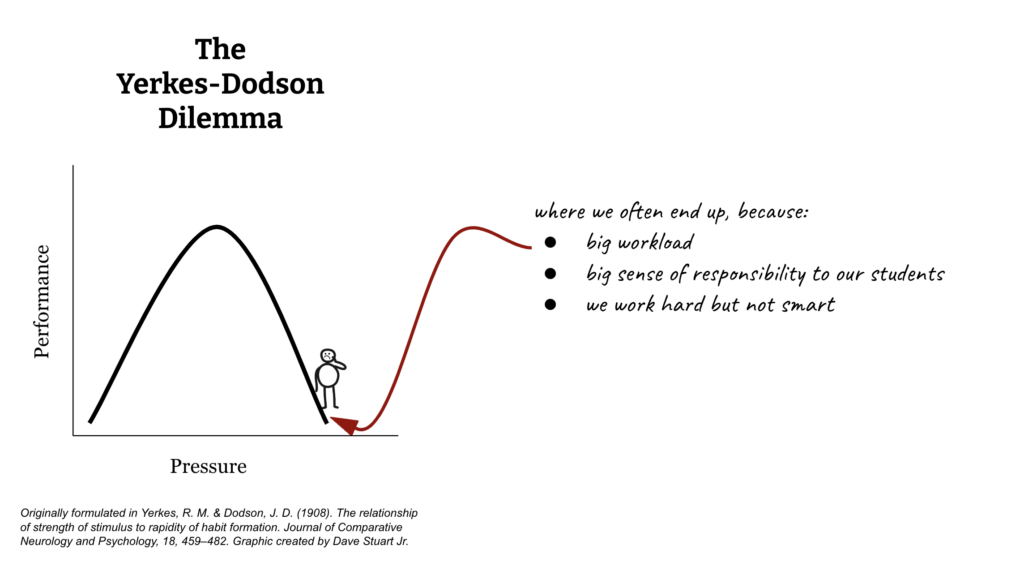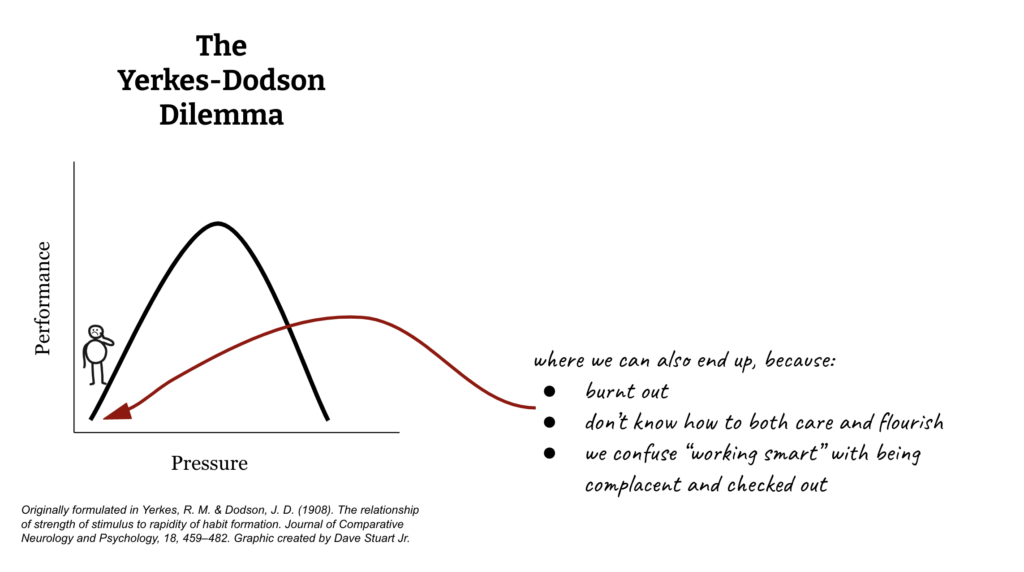So much of effective teaching — and good living — comes down to how well you manage to stay atop the Yerkes-Dodson Curve.

When you're up there, you get it all:
- Maximized effectiveness — you're experiencing some pressure to improve, to perform, to engage, but not too much.
- Maximized enjoyment of your job — human souls don't desire total ease; we want to be engaged, to have to think, to have to try.
- A maximized sense of meaning and purpose — when you're not bored and not overstressed, you find it easier to tap into the deeper stuff of life.
The trouble is that the Yerkes-Dodson Curve is slippery. I've yet to meet a person who has always found it easy to stay up there. And so, left to the defaults of our profession, you can end up in one of two places.

On one side of the curve, you're burnt out and stretched thin. It's easy to get here because the work we do is important, which means there's tons of internal and external pressure sources. Plus, if you have perfectionistic tendencies (many of us teachers do), you can end up working super hard on everything, even things that don't do much to improve student outcomes.

But on the other side of the curve, you find yourself unchallenged, bored, and apathetic. You're disengaged; you're going through the motions. This can happen because you got burnt out on the other side of the curve; it can happen because you were emotionally hurt by the deeds or words of a colleague, student, or parent; it can happen because you just don't know how to both care deeply about this work and flourish as a non-stressed out human being.
So, what's the trick to staying on top?
Well, there aren't any silver bullets for this — it's just one of those areas of inner work that I suspect we'll do our whole lives. But the work itself is pretty basic:
- Step 1: Figure out where you are.
- Step 2: Apply the proper medicine.
If you're on the under-pressured side, you can do things like observe a colleague, read (and apply!) a new PD book, ask someone to sit in on your lessons, or set a challenge for yourself for the next month of your teaching. About a month and a half ago, I was sensing that I was in this place, and so I decided to do at least one pop-up debate per week with my students. I quickly became more engaged by the pleasant pressure of the challenge.
If you're on the over-pressured side, you can do things like take a walk, grade less, or give yourself permission to be a good enough teacher for a week while you take inventory of where you might be overworking unproductively. On that note of grading less, if you're like, “C'mon Dave I can't @#$ do that!” please read how our colleague Robert McFadden changed his experience of his job through a simple realization about grading.
And in all of it, don't get stressed about managing your stress. The last thing we want is to add pressure to our pressure because we feel pressure to make it perfect.
😉
Best to you, colleague,
DSJR
Leave a Reply